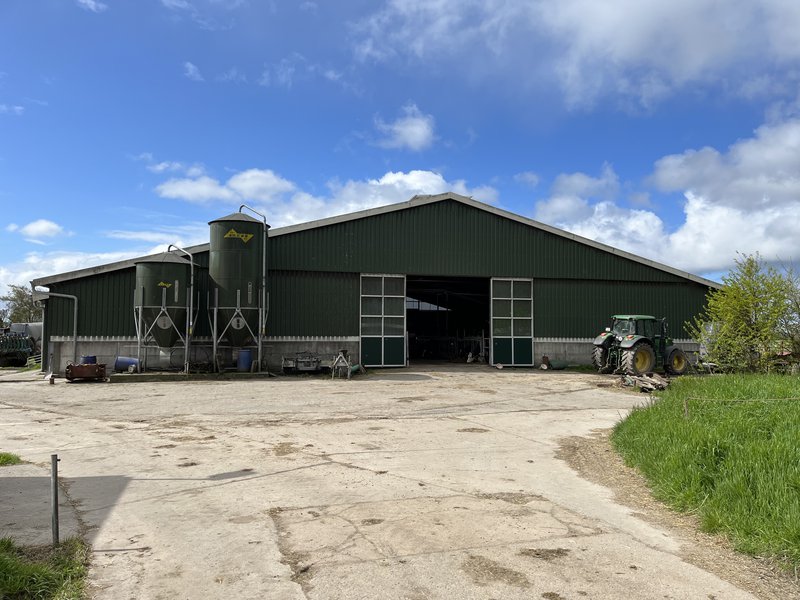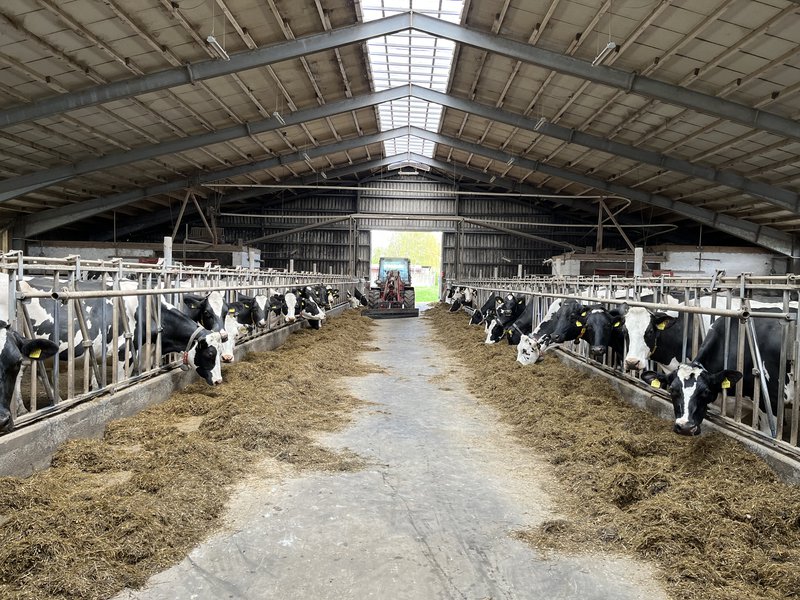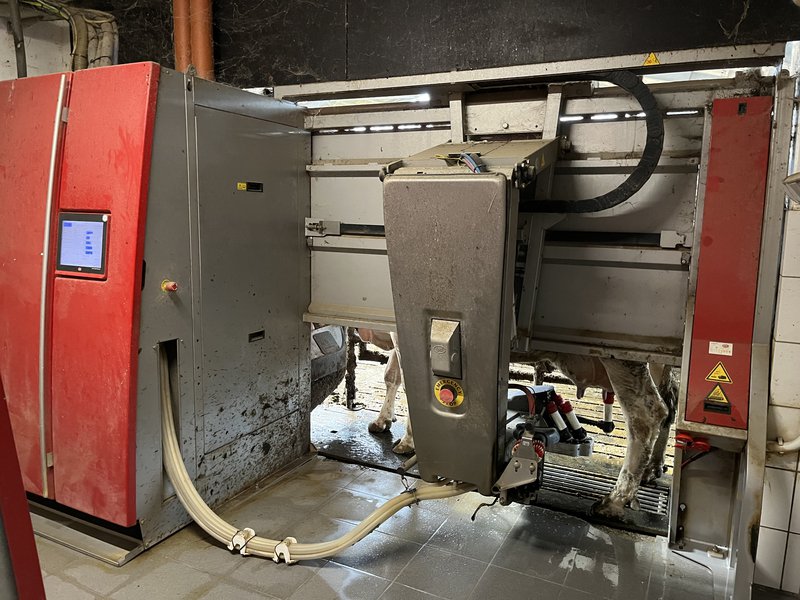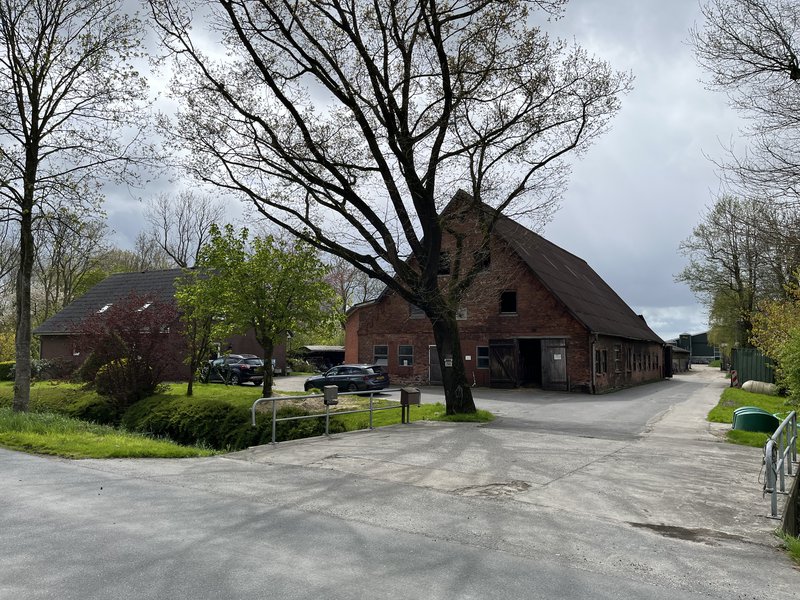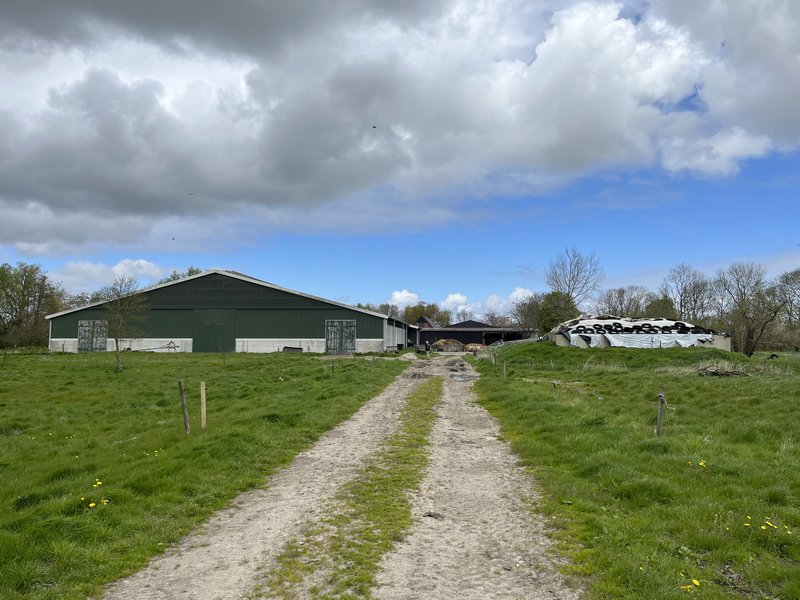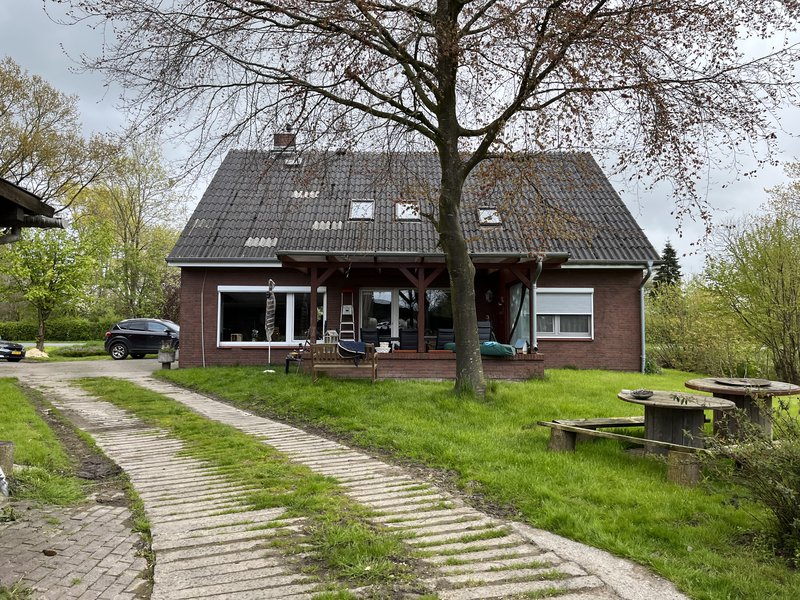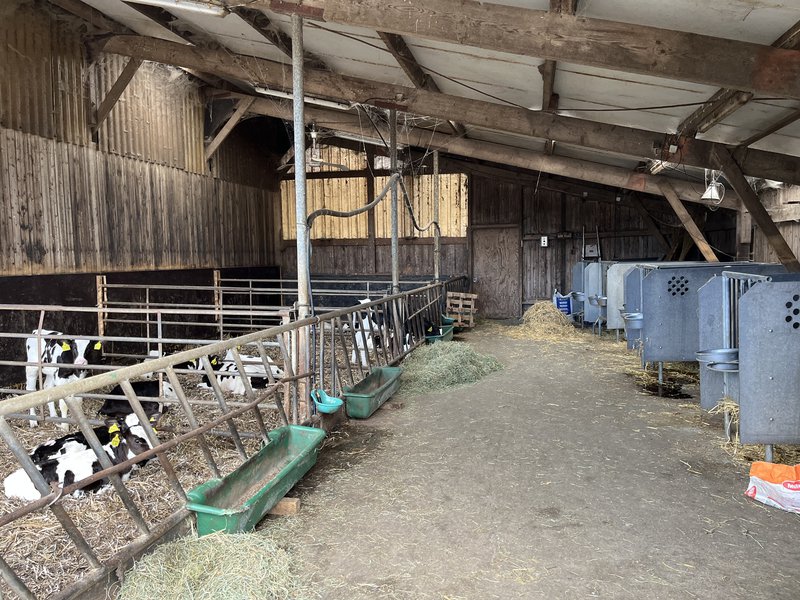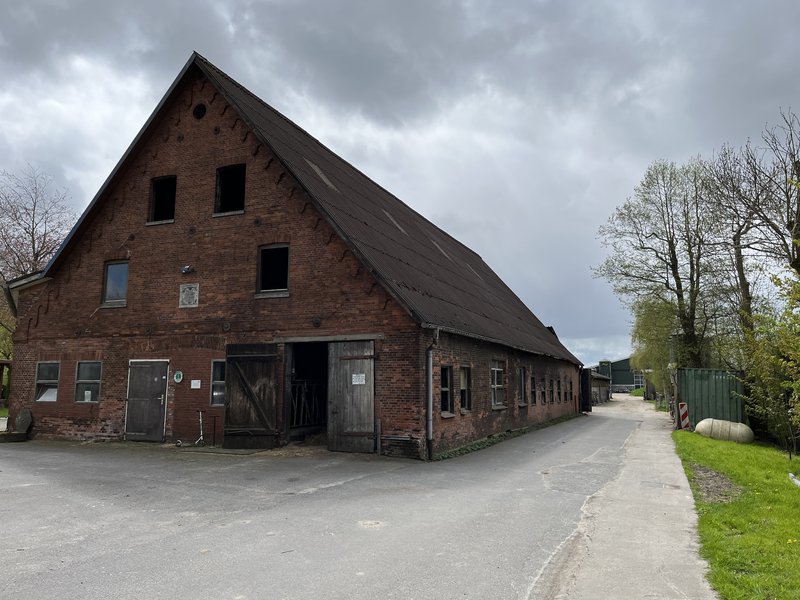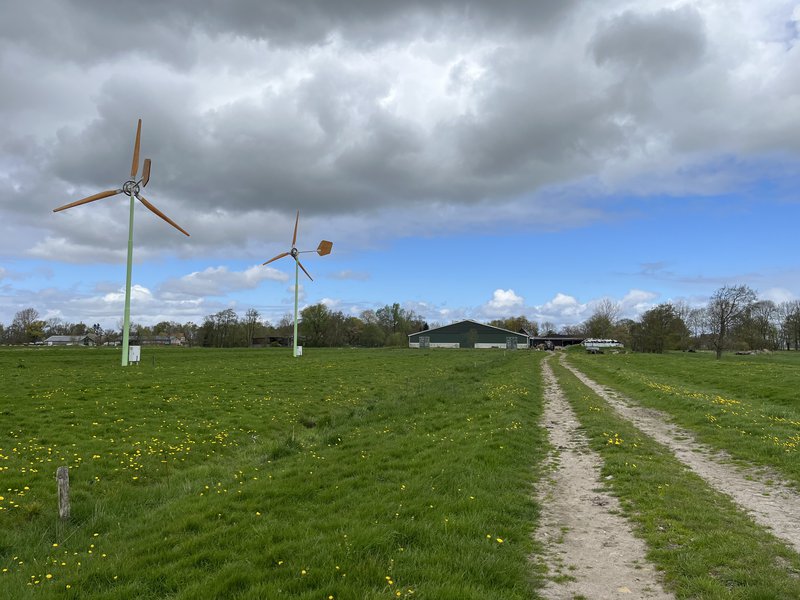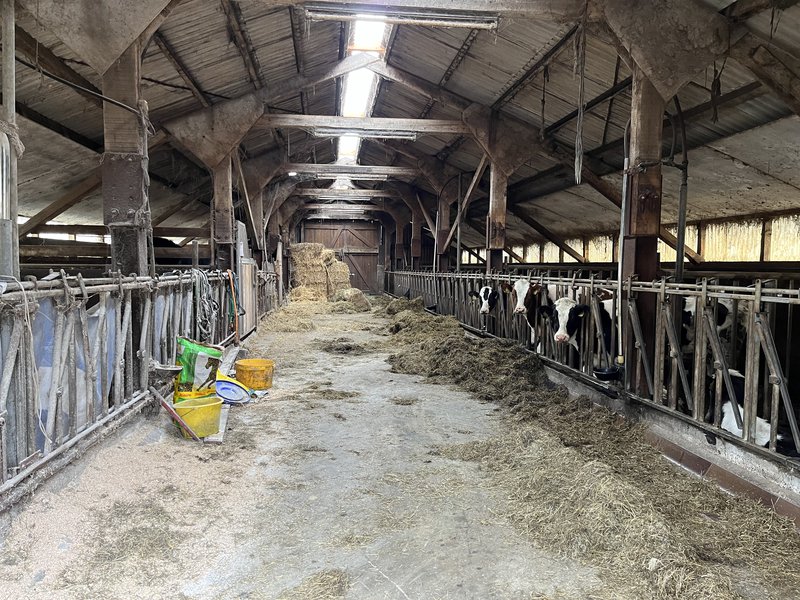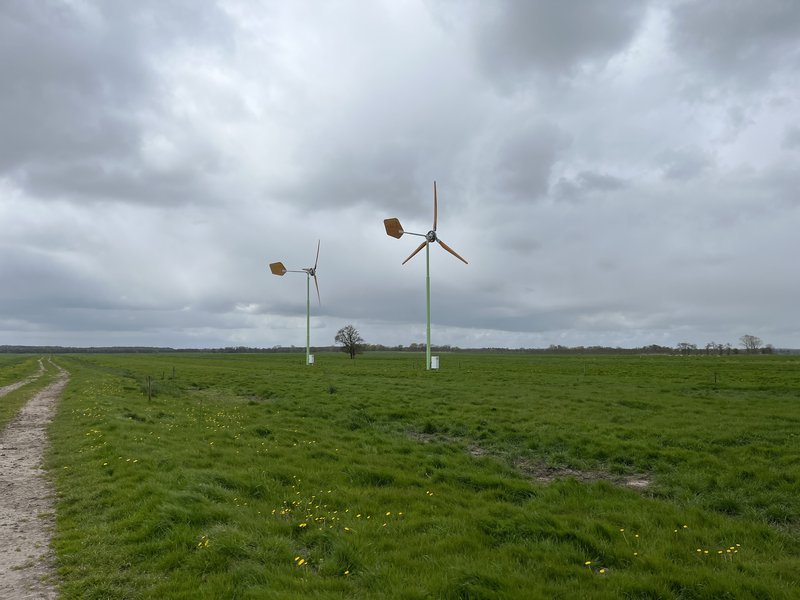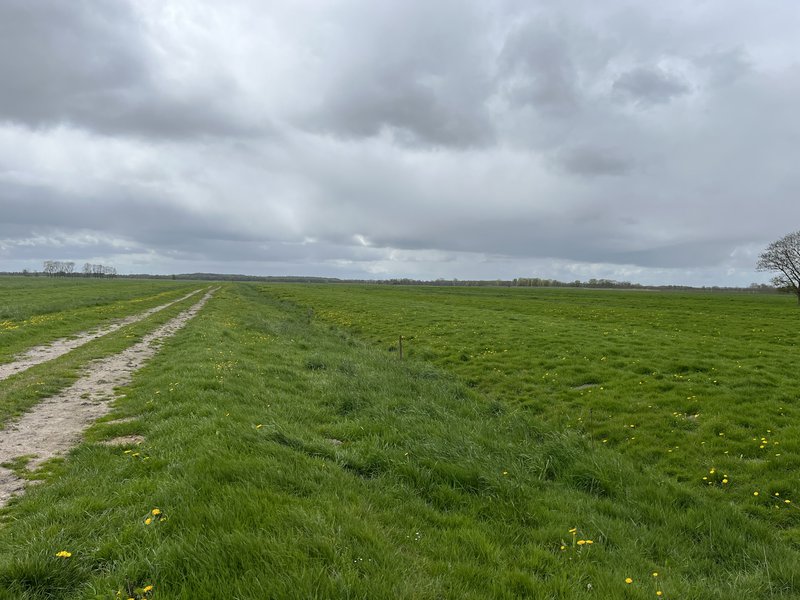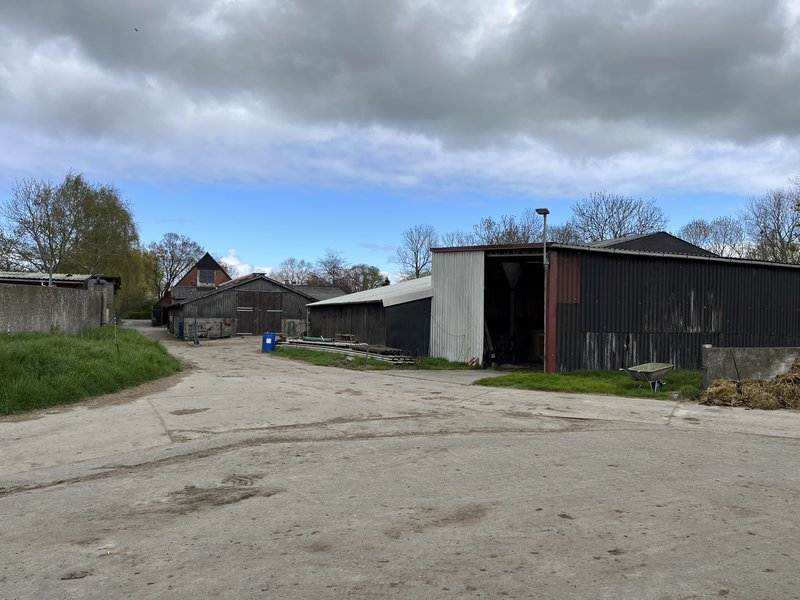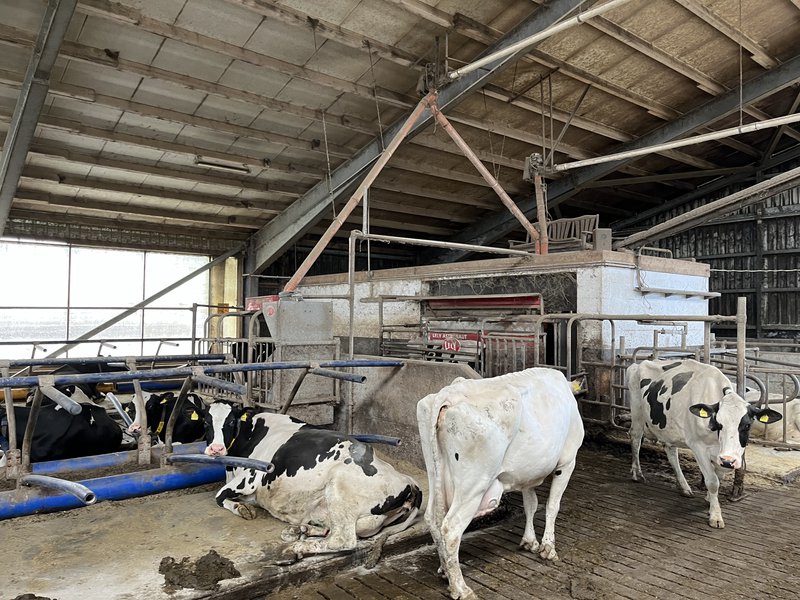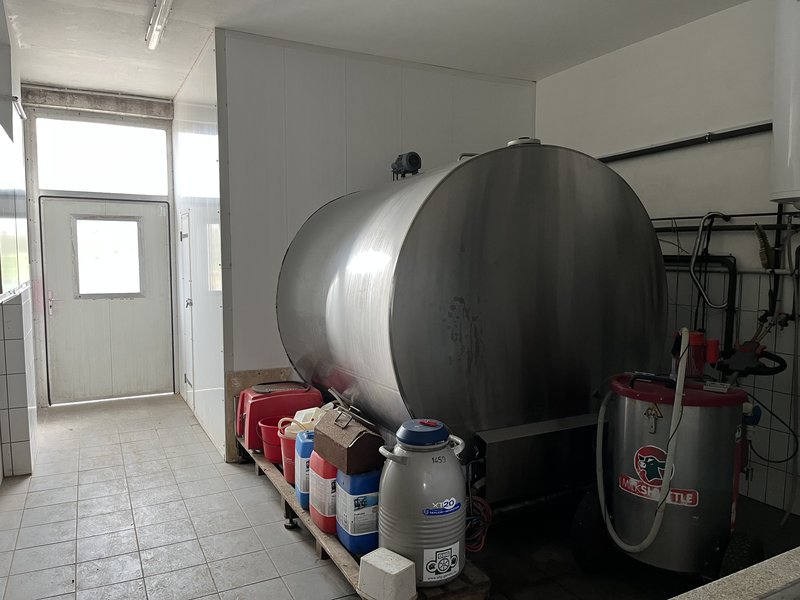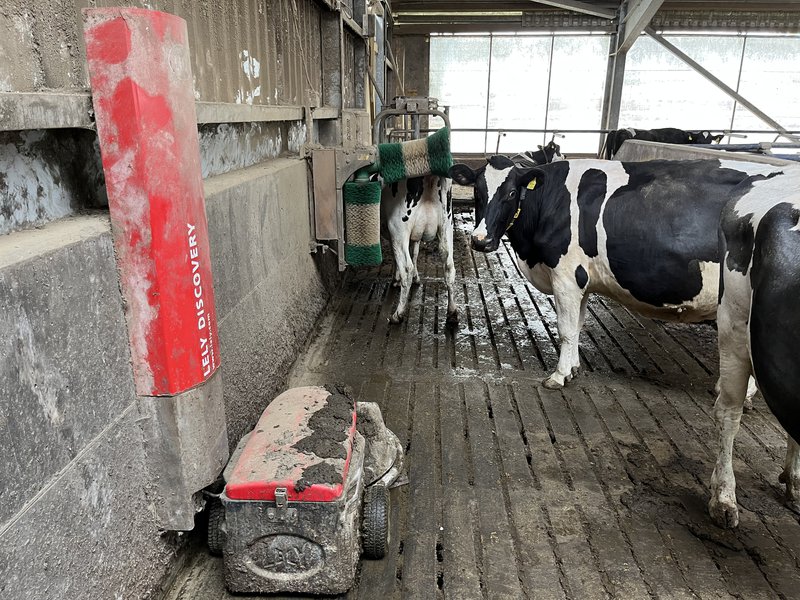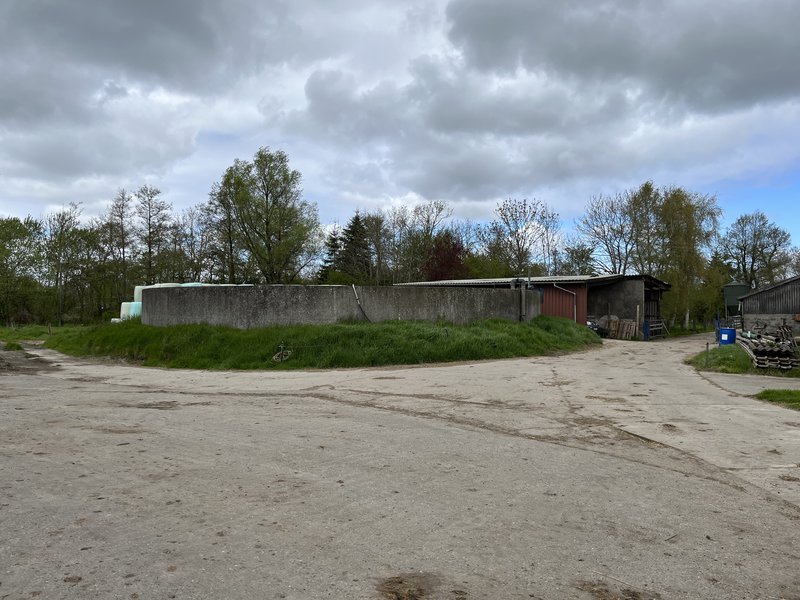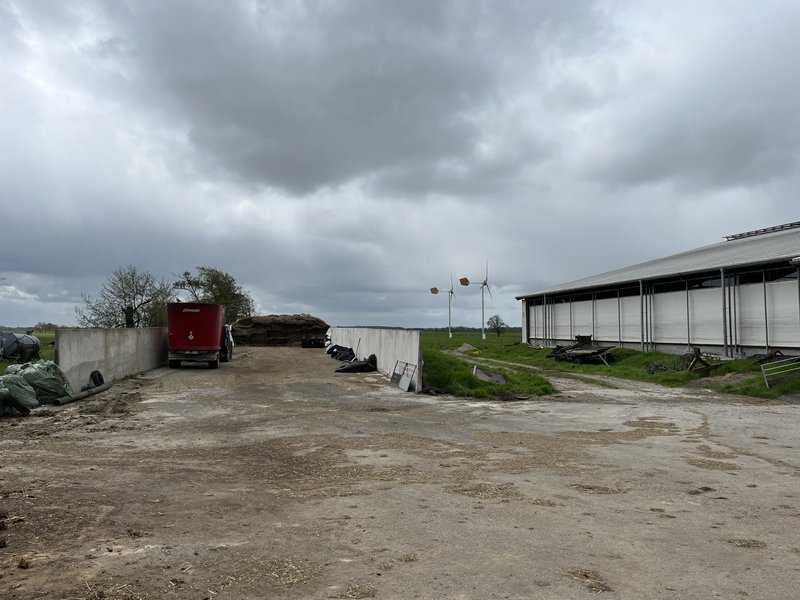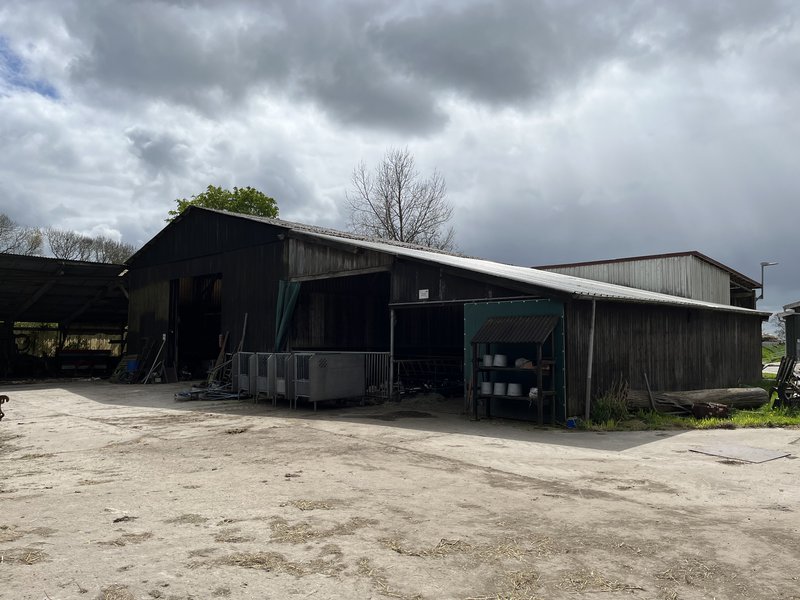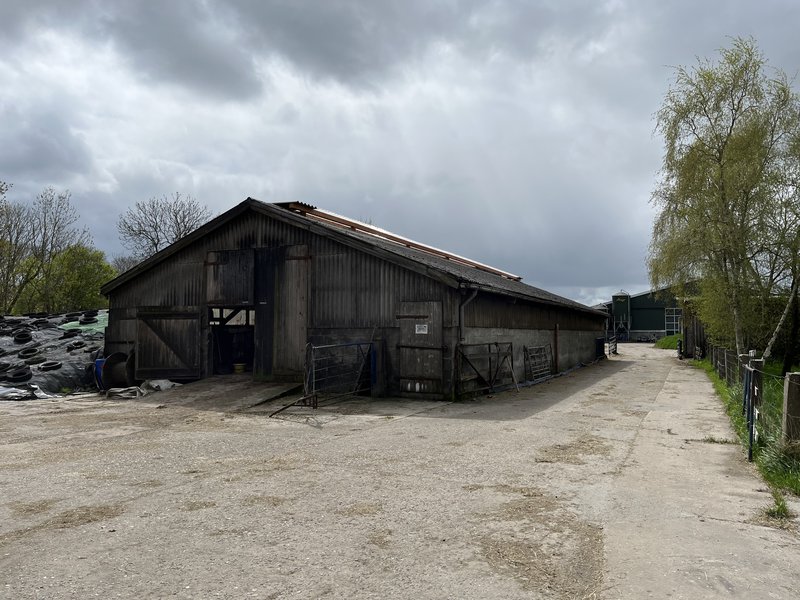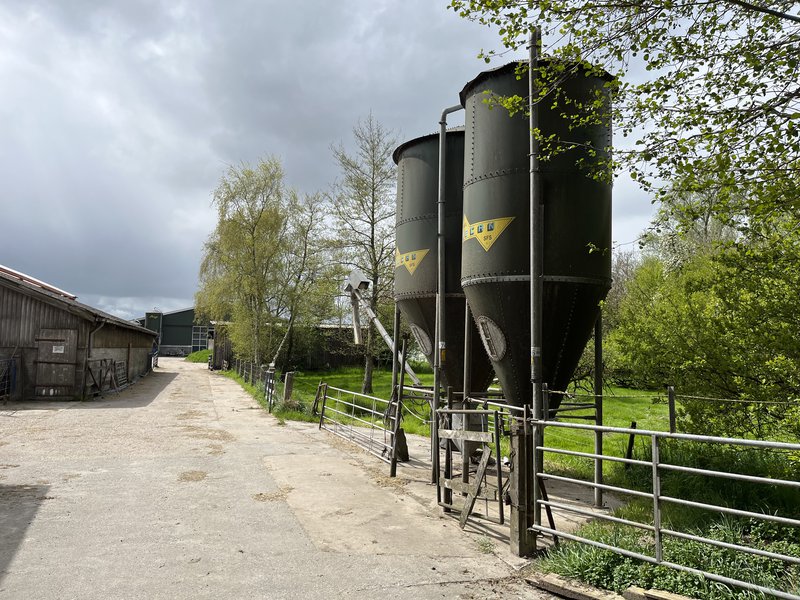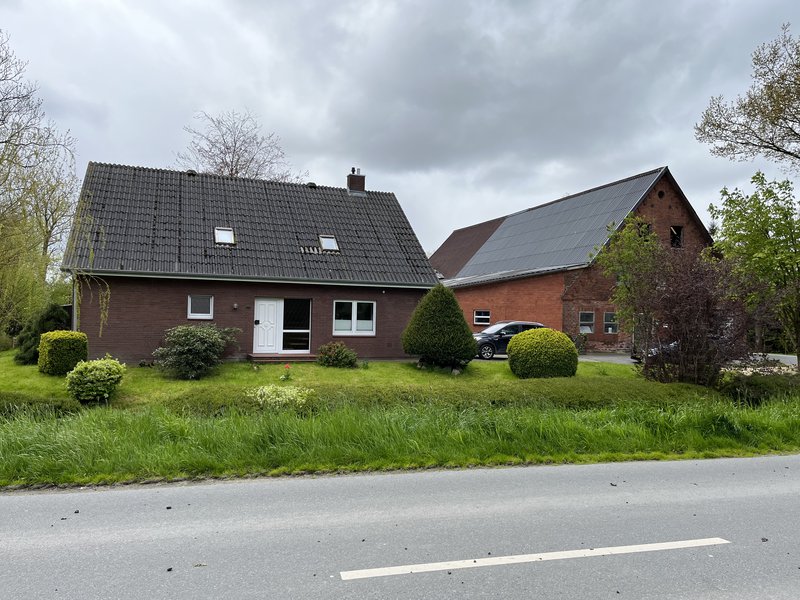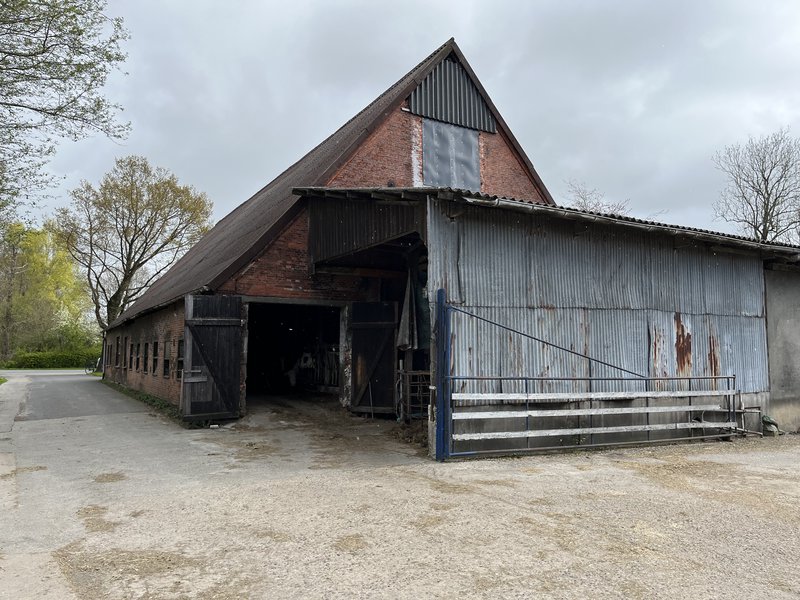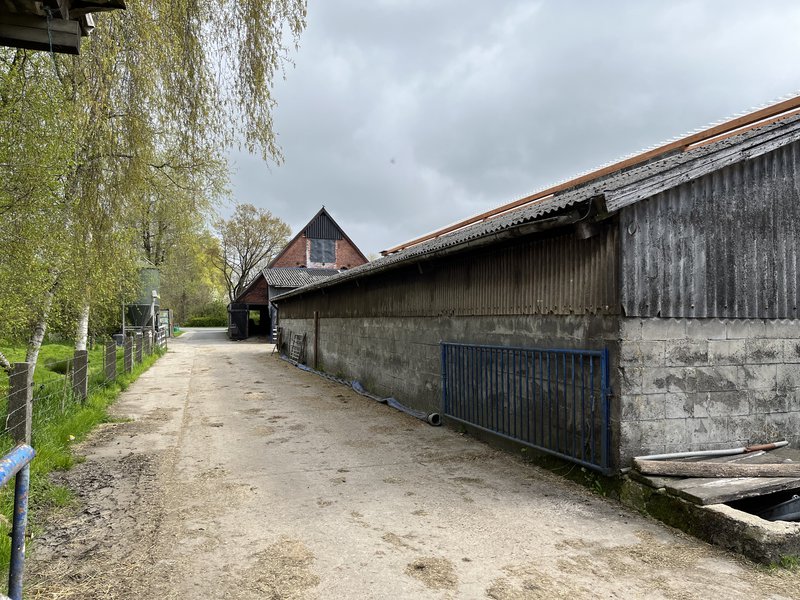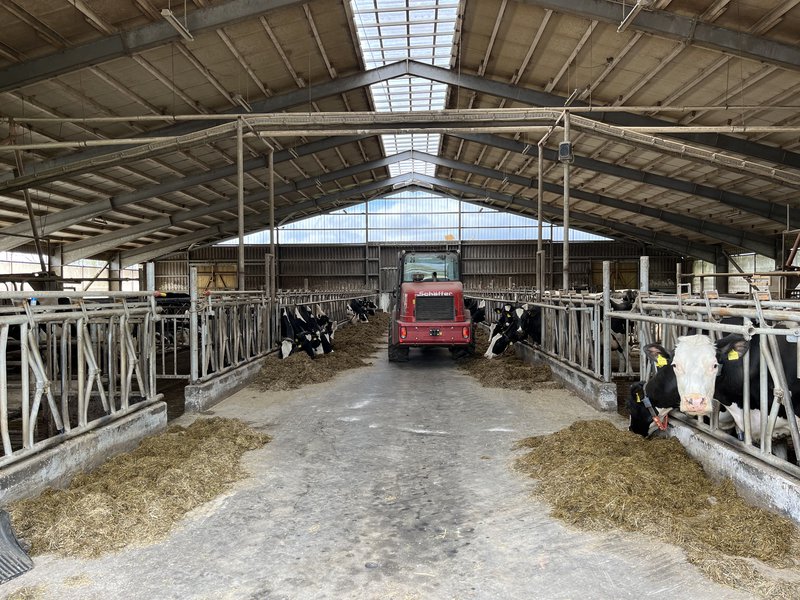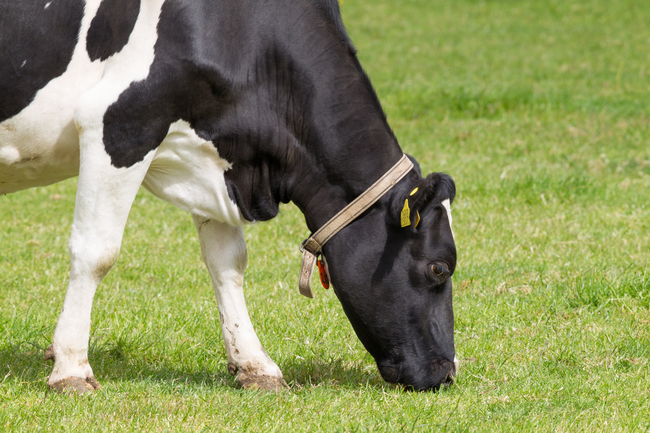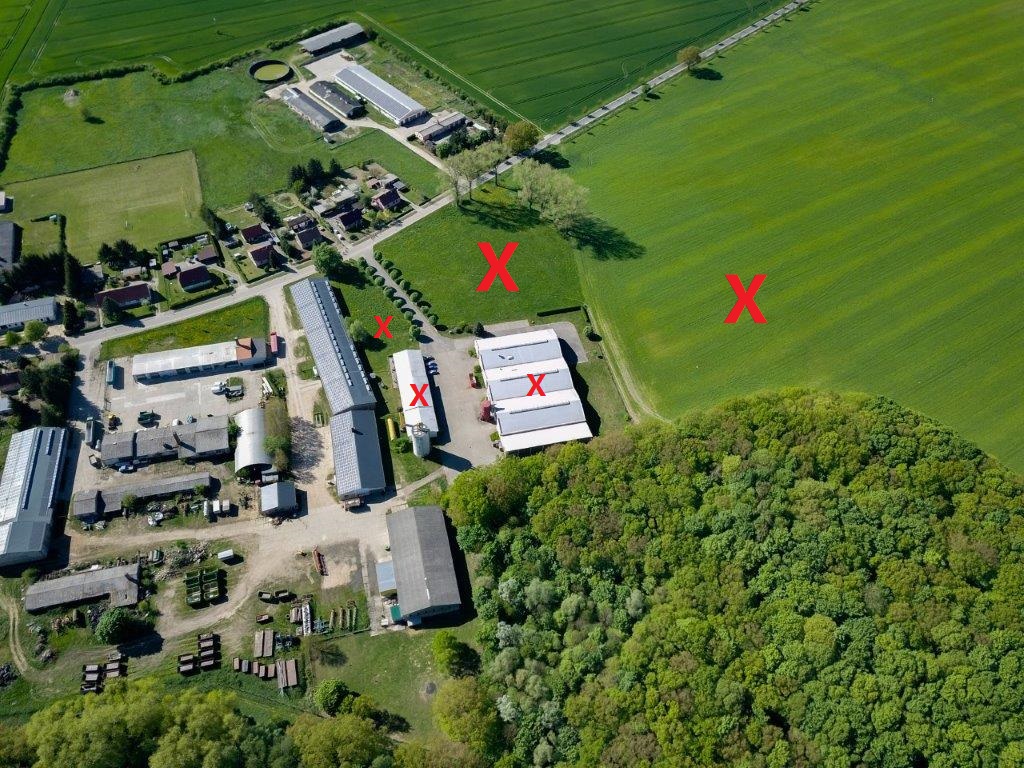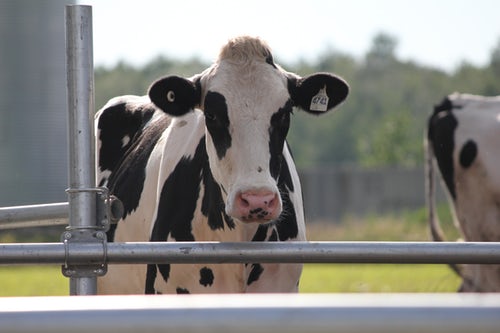Modern dairy farm in Lower Saxony.
Niedersachsen, Germany
In the state of Niedersachsen, near Cuxhaven, we offer for sale a modern family business.
Characteristics
Characteristics
Description
With house, young cubicle barn (2015), young cattle barn, manure silo, roughage storage, 2 wind turbines and further appurtenances. The company consists of approximately 30 hectares of own land and the possibility to lease approximately 60 hectares - mostly grassland. The cubicle barn has 124 large cattle boxes and is equipped with 2 Lely milking robots.
Company House
Detached house from 1982 with plastic window frames and double glazing. The house is built with cavity walls and the roof is covered with asbestos corrugated sheets. The floors are concrete and have underfloor heating on both the ground floor and the upper floor. The central heating boiler has been recently renewed. The house has 6 bedrooms and 2 bathrooms, spread over both living floors. Preparations have been made to make the house suitable for double occupancy. A terrace roof has been added to the rear of the house. Layout of the house: Ground floor: Hall with entrance and staircase - living room with dining area and patio doors - kitchen - utility room with central heating boiler and back entrance - 2 bedrooms - bathroom - toilet. Upper floor: Landing - 4 bedrooms - bathroom with shower, bathtub, and toilet.
Cubicle Barn
Detached cubicle barn from 2015 with 124 large cattle boxes, 2 concentrate boxes, 2 straw pens, concrete feeding alley, 2 Lely milking robots, a manure cellar, and tank room with 9,700-liter milk tank. The barn is constructed with steel trusses with free span and an insulated roof. The facades are partly clad with dam wall and the open sides are equipped with electrically operated windbreak mesh. The manure cellar has a total capacity of 1,872 m³, part of which is used for yard water. Furthermore, there are facilities in the barn such as heat detection, heat recovery Mueller Fre-Heater, and a circulation system. The cubicle barn has direct access to the grasslands behind.
Young Cattle Barn
At the front of the yard is an old cubicle barn from around 1920, which was expanded in 1999. The barn is currently used for young cattle and dry cows. The milking installation is still present (2 x 7 herringbone). The barn has 80 cubicles and a concentrate box. The wooden roof structure is covered with asbestos-free corrugated sheets and the facades are built in masonry. Furthermore, there is a freestanding barn with a slatted floor for about 45 calves. Additionally, there are 2 horse boxes present. This barn is covered with asbestos corrugated sheets. Finally, there is a freestanding wooden shed with calf pens and a workshop. The barn has a concrete floor and the roof is covered with sandwich panels. A hay barn (9 x 20 m) is attached for machine storage.
Roughage Storage
There are a total of 4 silage plates and 1 trench silo on the yard. The trench silo is located next to the cubicle barn and was constructed in 2015. Its dimensions are 10 x 50 x 2 meters. The 4 silage plates are located at the young cattle barn and are 30 by 5.5 meters.
Manure Silo
Concrete manure silo without a roof with a capacity of 1000 cubic meters.
Lands
Behind the farm lies approximately 29.7 hectares of contiguous grassland including a rubble-paved plot path. The plots consist of clay soils with round fields (elongated plots with ditches). The plots are drained with a well every 180 meters. In addition to the owned lands, it is possible to lease approximately 60 hectares - mostly grassland and partly arable land.
Wind Turbines
Behind the cubicle barn are 2 wind turbines from April 2021. The total yield of both wind turbines is approximately 55,000 kWh per year.
Acceptance
The acceptance is to be agreed upon in consultation. The seller's intention is to transfer the company as a 'going concern'. However, the asking price is exclusive of livestock, machinery, and stocks.
General
- Dairy farm with 124 large cattle and 80 young cattle
- Young cubicle barn from 2015 -
- 2 wind turbines from April 2021 with a total yield of approximately 55,000 kWh per year
- Approximately 29.7 hectares owned and the possibility of approximately 60 hectares of leasehold land
- Mainly clay soils
- Acceptance in consultation, possibly 'going concern'
- Price on request
We strive to contact you within 48 hours.

Germany
Germany, located in the heart of Europe, is a country with a rich history and diverse culture. It has a population of more than 83 million people, making it the most populous country in the European Union. The population is generally well-educated, and the standard of living is high. Agriculture still plays an important role in the rural economy, combining modern technologies with traditional practices.
Germany consists of sixteen federal states, each with its own unique characteristics and culture. These are some of the most important states.
Bavaria (Bayern)
Located in the southeast of Germany, Bavaria is known for its beautiful landscapes, traditional villages, and rich history. It is also an important agricultural region with vast fields and farms. Bavaria generally hosts the largest number of arable farms in Germany. The state is known for its extensive farmland and favorable climatic conditions for the cultivation of various crops. Bavarian farms grow a wide range of crops, including grains, potatoes, sugar beets, and corn.
North Rhine-Westphalia (Nordrhein-Westfalen)
As the most densely populated state in Germany, North Rhine-Westphalia is home to major cities such as Cologne, Düsseldorf, and Dortmund. It is an important industrial center, but rural areas also play a significant role, with many farms.
Lower Saxony (Niedersachsen)
With its vast plains and fertile lands, Lower Saxony is a key agricultural region. In addition to agriculture, this state boasts beautiful nature, including the Wadden Sea area, which is a UNESCO World Heritage site. Furthermore, Lower Saxony hosts the most dairy farms in Germany.
Baden-Württemberg
This state in southwest Germany is known for its innovation and technology, as well as its traditional villages and vineyards. The agricultural sector here is advanced and focused on sustainability.
Germany's population is not only concentrated in large cities but spread across the entire country, from the North Sea coasts to the Bavarian Alps. This diversity is also reflected in the agricultural sector, where traditional practices combine with modern technologies to meet the needs of a growing population and a changing climate.
Sports
Sports play an important role in German society. Soccer is by far the most popular sport. Other sports like hockey, handball, and athletics are also widely popular.
Economy
Germany remains one of the world's largest and most advanced producers of various goods, including iron, steel, coal, cement, chemicals, machinery, vehicles, tools, electronics, food and beverages, shipbuilding, and textiles. Despite its strong industrial production, Germany is relatively poor in natural resources. Although it has significant reserves of hard coal and lignite, Germany largely imports oil and natural gas. Other mineral resources are extracted in limited quantities.
Politics
Germany is a federal republic with a democratic system. The country is governed by a chancellor and a parliament, the Bundestag. At the regional level, there are state governments with various powers.
Education
As in the Netherlands, school attendance is compulsory in Germany, starting at the age of six. Children are required to attend school for at least nine years, followed by three years of vocational training. The responsibility for education largely lies with the state governments, meaning that education systems can vary from region to region. Overall, most of the education in Germany is free of charge.
